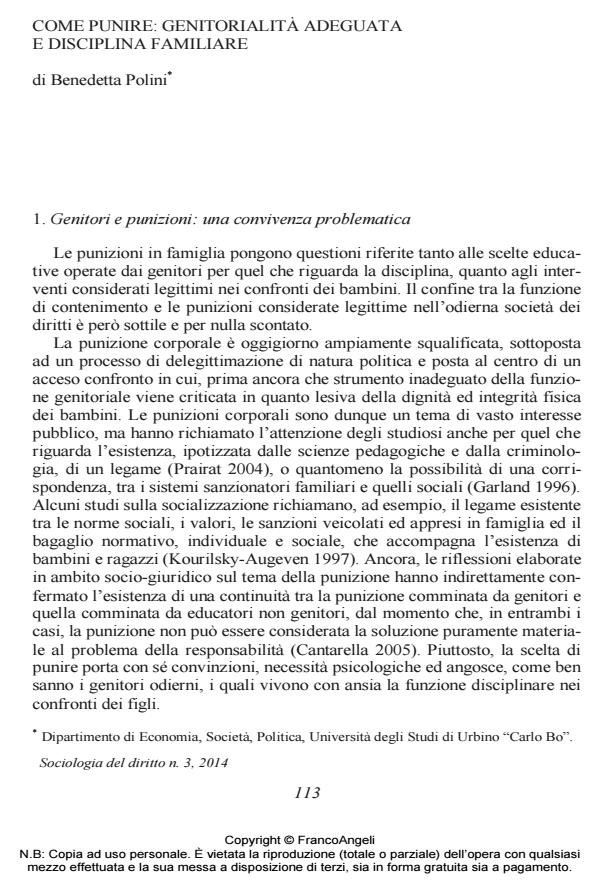How to punish: parental adequacy and family discipline
Journal title SOCIOLOGIA DEL DIRITTO
Author/s Benedetta Polini
Publishing Year 2015 Issue 2014/3
Language Italian Pages 19 P. 113-131 File size 128 KB
DOI 10.3280/SD2014-003006
DOI is like a bar code for intellectual property: to have more infomation
click here
Below, you can see the article first page
If you want to buy this article in PDF format, you can do it, following the instructions to buy download credits

FrancoAngeli is member of Publishers International Linking Association, Inc (PILA), a not-for-profit association which run the CrossRef service enabling links to and from online scholarly content.
The use of corporal punishment is pivotal to the debate marked by numerous publications that call attention to the negative nature of corporal punishment on children's development. Moreover, corporal punishment raises the question of whether it is even necessary or legitimate, considering the acknowledged protection of the rights of children and of adolescents. On the other hand, the use of corporal punishment takes into account aspects of family discipline and, therefore, contributes to defining today’s perception of adequate parenting. The article describes the often difficult relationship between corporal punishment and adequate parenting, given that the understanding of the latter is still largely undefined, especially with regard to family discipline.
Keywords: Family discipline, Parental adequacy, Punishment
Benedetta Polini, Come punire: genitorialità adeguata e disciplina familiare in "SOCIOLOGIA DEL DIRITTO " 3/2014, pp 113-131, DOI: 10.3280/SD2014-003006